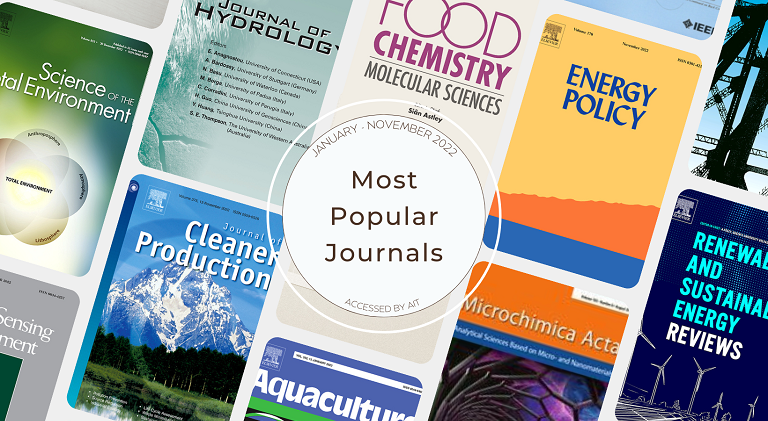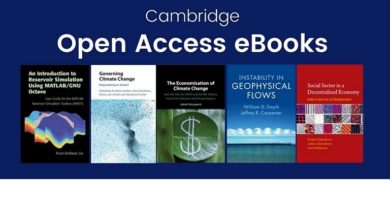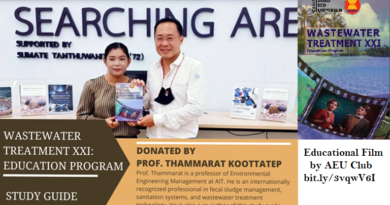Most Popular Journals from January to November 2022
The most popular journals are selected by the number of downloaded documents from January – November 2022 and based on the access of AIT users. To make it easy for you to review each title, we have categorized them by subject areas and provided brief information about the scope of each title, CiteSore, Impact Factor, available issues of the print version, and a link to online access.
Please note that the provided CiteScore and Impact factor showing on the web page is the information as of 16 November 2022. Please click on the provided link to see the updated score.
To check the information about the impact factor, you can click on the provided link. Then, click on the journal-title. You will find more information about impact factors.
Environmental Science
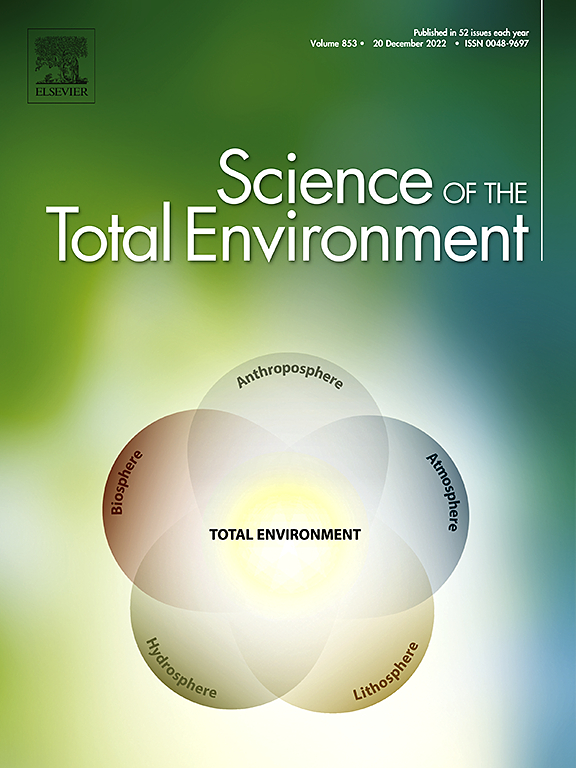
Science of the Total Environment is an international multi-disciplinary natural science journal for the publication of novel, hypothesis-driven, and high-impact research on the total environment, which interfaces the atmosphere, lithosphere hydrosphere, biosphere, and anthroposphere.
- CiteScore = 14.1 (https://www.scopus.com/sourceid/25349)
- Impact Factor = 10.754 (https://www.webofscience.com/wos/woscc/summary/49837e3f-3026-4a4f-85e0-d6f124e474bc-5e83657f/relevance/1)
- Print version (Available at Library): v.1-112 (1972/73-1992)
- Online version: https://www.sciencedirect.com/journal/science-of-the-total-environment
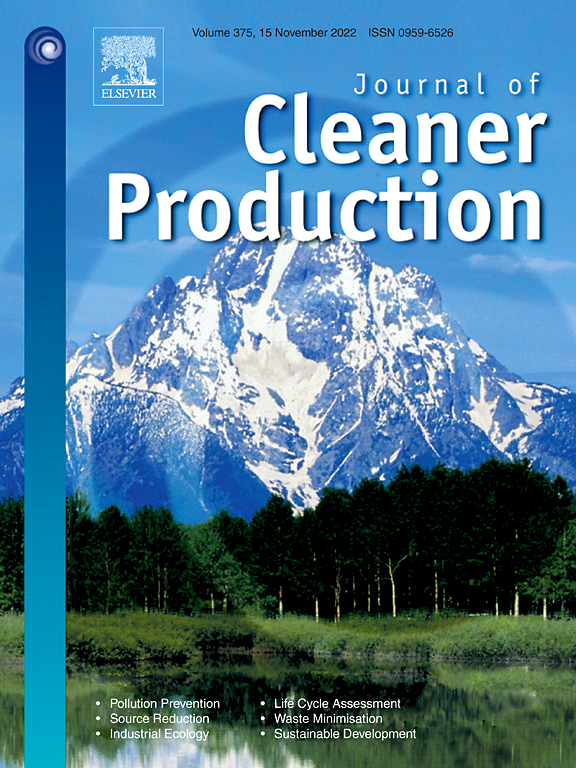
The Journal of Cleaner Production is an international, transdisciplinary journal focusing on Cleaner Production, Environmental, and Sustainability research and practice. Through our published articles, we aim at helping societies become more sustainable.’Cleaner Production is a concept that aims at preventing the production of waste while increasing efficiencies in the uses of energy, water, resources, and human capital.
- CiteScore = 15.8 (https://www.scopus.com/sourceid/19167)
- Impact Factor = 11.072 (https://www.webofscience.com/wos/woscc/summary/4f3bd06c-ca4e-4080-a66a-c04eb2d51531-5e657393/relevance/1)
- Online version: https://www.sciencedirect.com/journal/journal-of-cleaner-production
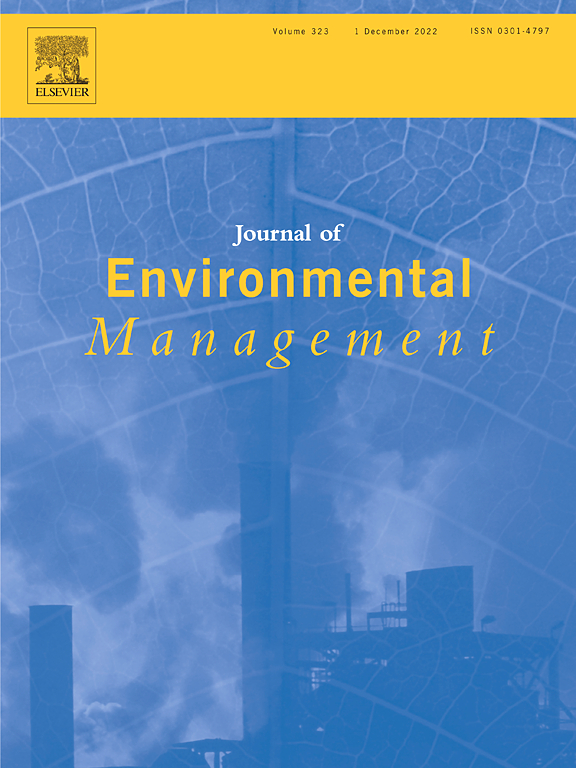
The Journal of Environmental Management is a peer-reviewed journal for the publication of original research related to managing environmental systems and improving environmental quality. All papers submitted to the journal must show a distinctive link with environmental management applications.
- CiteScore = 11.4 (https://www.scopus.com/sourceid/23371)
- Impact Factor = 8.91 (https://www.webofscience.com/wos/woscc/summary/6fafefd7-abdb-42b7-b0f4-2b8d0087e297-5e65949b/relevance/1)
- Print version (Available at Library): v.1-69 (1973-2003)
- Online version: https://www.sciencedirect.com/journal/journal-of-environmental-management
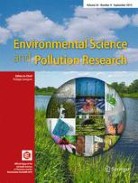
Environmental Science and Pollution Research (ESPR) serves the international community in all areas of Environmental Science and related subjects with an emphasis on chemical compounds. It reports from a broad interdisciplinary outlook. Apart from the strictly scientific contributions as research articles (short and full papers) and reviews, ESPR publishes news & views from research and technology, legislation and regulation, hardware and software, education, literature, institutions, organizations, and conferences.
- CiteScore = 6.6 (https://www.scopus.com/sourceid/23918?origin=resultslist)
- Impact Factor = 5.190 (https://www.webofscience.com/wos/woscc/summary/ed58905b-c647-4a10-a0ca-d56dd0e75a65-5e29ee30/relevance/1)
- Online version: https://www.springer.com/journal/11356/
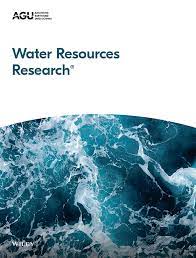
Water Resources Research (WRR) is an interdisciplinary journal that focuses on hydrology and water resources. It publishes original research in the natural and social sciences of water. It emphasizes the role of water in the Earth system, including physical, chemical, biological, and ecological processes in water resources research and management, including social, policy, and public health implications. It encompasses observational, experimental, theoretical, analytical, numerical, and data-driven approaches that advance the science of water and its management. Submissions are evaluated for their novelty, accuracy, significance, and broader implications of the findings.
- CiteScore = 8.2 (https://www.scopus.com/sourceid/18854?origin=resultslist)
- Impact Factor = 6.16 (https://www.webofscience.com/wos/woscc/summary/688fe8d6-378c-495b-8cee-716a2709f683-5e2daf42/relevance/1)
- Print version (Available at the library): v.1-4 (1965-1971); v.8 n.1-3 (1972);v.9 (1973);v.10 n.1-3 (1974); v.11-17 (1975-19814); v.18 n.1-3,5-6 (1982); v.19-38 (1983-2002); v.39 n.1-7,9-12 (2003); v.40-42 (2004-2006)
- Online version: https://agupubs.onlinelibrary.wiley.com/journal/19447973
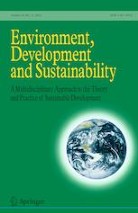
Environment, Development and Sustainability is an international, multidisciplinary journal covering all aspects of the environmental impacts of socio-economic development. Concerned with the complex interactions between development and the environment, its purpose is to seek ways and means for achieving sustainability in all human activities aimed at such development. Coverage includes interactions among society, development, and environment, and their implications for sustainable development; technical, economic, ethical, and philosophical aspects of sustainable development; local, regional and global sustainability and their practical implementation; development and application of indicators of sustainability; development, verification, implementation and monitoring of policies for sustainable development; sustainable use of land, water, energy and biological resources in development; impacts of agriculture and forestry activities on soil and aquatic ecosystems and biodiversity, and much more.
- CiteScore = 4.4 (https://www.scopus.com/sourceid/20902?origin=resultslist)
- Impact Factor = 4.080 (https://www.webofscience.com/wos/woscc/summary/54194db3-c5de-4310-a3c2-f37293645b85-5e32c3f2/relevance/1)
- Online version: https://www.springer.com/journal/10668
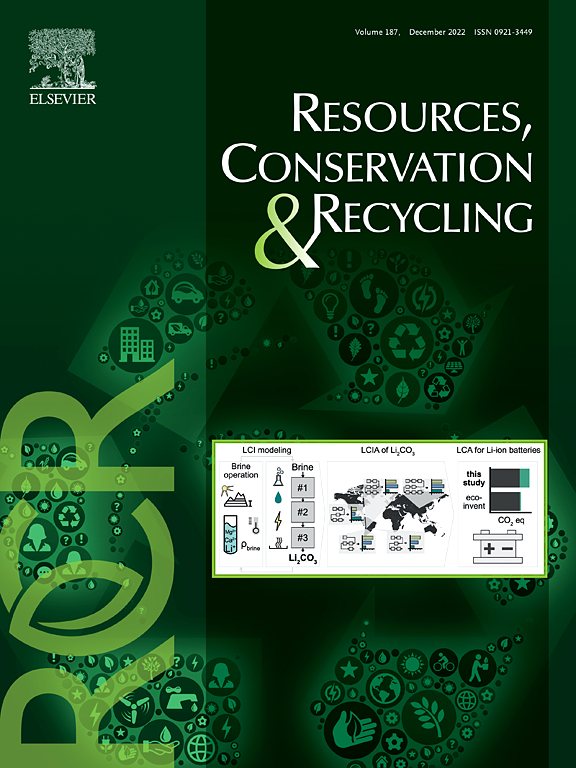
Resources, Conservation & Recycling has a Golden Open Access companion journal Resources, Conservation & Recycling Advances which has an independent editorial board and peer-review process. The journal emphasizes the transformation processes involved in a transition toward more sustainable production and consumption systems. Emphasis is upon technological, economic, institutional, and policy aspects of specific resource management practices, such as conservation, recycling, and resource substitution, and of “systems-wide” strategies, such as resource productivity improvement, the restructuring of production and consumption profiles, and the transformation of industry.
- CiteScore = 17.9 (https://www.scopus.com/sourceid/26424)
- Impact Factor = 13.716 (https://www.webofscience.com/wos/woscc/summary/a1f89a43-9e74-46db-8deb-ebb58032cbe7-5e33cd78/relevance/1)
- Online version: https://www.sciencedirect.com/journal/resources-conservation-and-recycling/
Earth Science
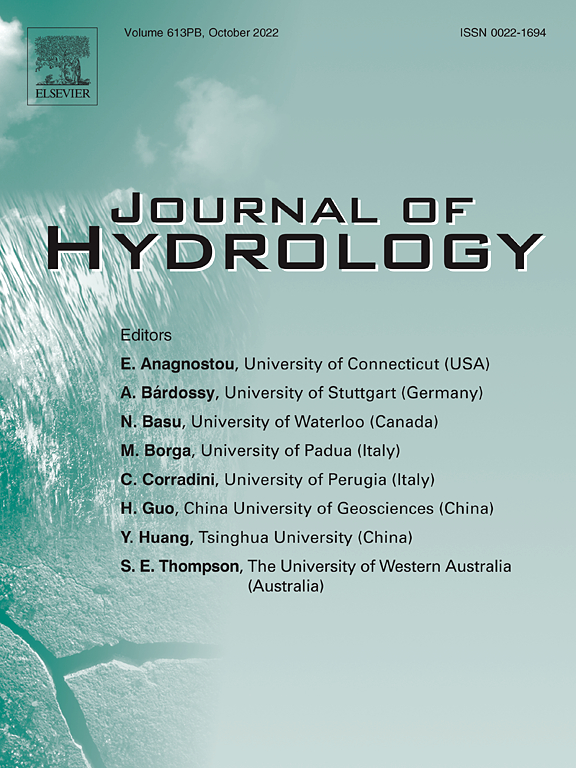
Journal of Hydrology publishes original research papers and comprehensive reviews in all the subfields of the hydrological sciences, including water-based management and policy issues that impact on economics and society. These comprise, but are not limited to the physical, chemical, biogeochemical, stochastic, and systems aspects of surface and groundwater hydrology, hydrometeorology, hydrogeology, and hydrogeophysics. Relevant topics incorporating the insights and methodologies of disciplines such as climatology, water resource systems, ecohydrology, geomorphology, soil science, instrumentation and remote sensing, data and information sciences, and civil and environmental engineering are within scope. Multi- and inter-disciplinary analyses of hydrological problems are invited, specifically ones that broaden the understanding of hydrologic science through integration with social, economic, or behavioral sciences.
- CiteScore = 9.1 (https://www.scopus.com/sourceid/50089)
- Impact Factor = 6.708 (https://www.webofscience.com/wos/woscc/summary/3f19438d-6aec-4add-a92d-30994127101d-5e535ee7/relevance/1)
- Print version (Available at Library): v.10-284 (1970-2003)
- Online version: https://www.sciencedirect.com/journal/journal-of-hydrology
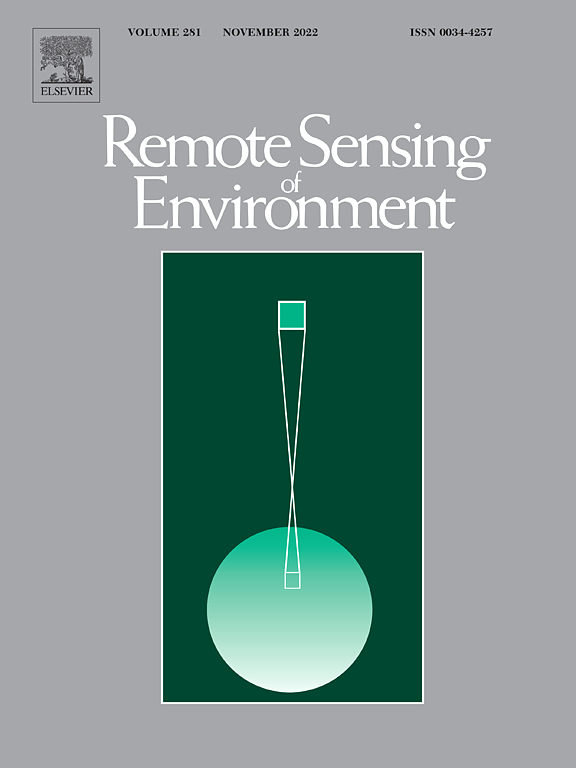
Remote Sensing of Environment (RSE) serves the Earth observation community with the publication of results on the theory, science, applications, and technology of remote sensing studies. Thoroughly interdisciplinary, RSE publishes terrestrial, oceanic, and atmospheric sensing. The emphasis of the journal is on biophysical and quantitative approaches to remote sensing at local to global scales.
- CiteScore = 20.7 (https://www.scopus.com/sourceid/12503)
- Impact Factor = 13.85 (https://www.webofscience.com/wos/woscc/summary/31f0360a-fa16-4c4a-b082-94cc13a24055-5e53aab7/relevance/1)
- Print version (Available at Library): v.1-3 (1969-1974); v.4 n.1-3 (1975); v.5-22 (1976-1987); v.23 n.1,3 (1987); v.24-27 (1988-1989); v.28 n.2 (1989); v.29-54 (1990-1995); v.56 n.2-3 (1996); v.57-88 (1996-2003)
- Online version: https://www.sciencedirect.com/journal/remote-sensing-of-environment
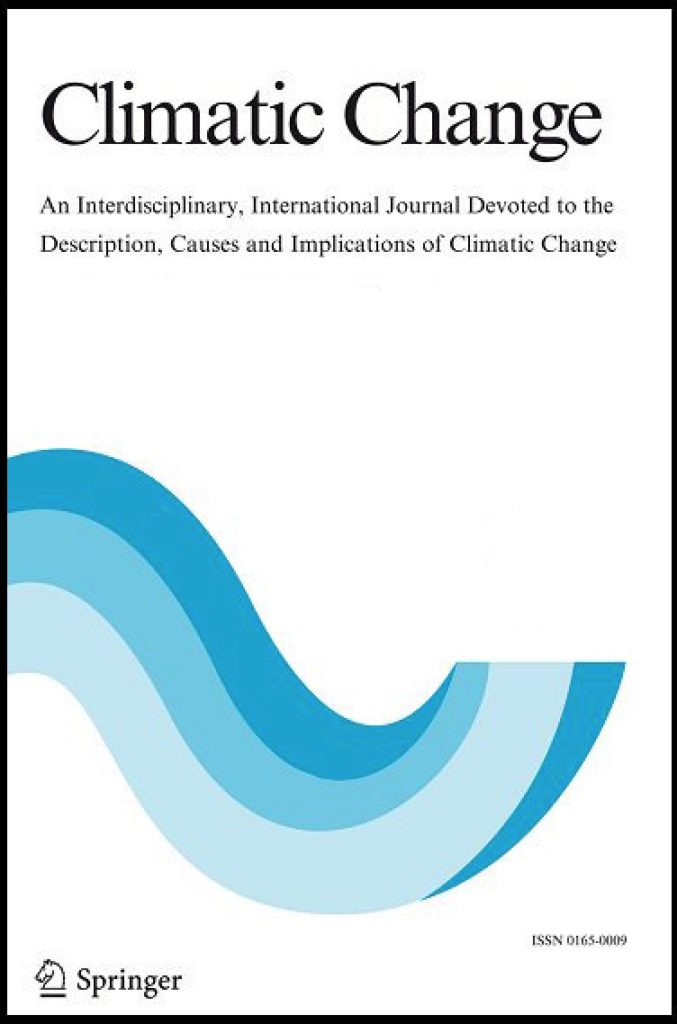
Climatic Change is dedicated to the totality of the problem of climatic variability and change – its descriptions, causes, implications, and interactions among these. The purpose of the journal is to provide a means of exchange among those working in different disciplines on problems related to climatic variations. This means that authors have an opportunity to communicate the essence of their studies to people in other climate-related disciplines and to interested non-disciplinarians, as well as to report on research in which the originality is in the combinations of (not necessarily original) work from several disciplines. The journal also includes vigorous editorial and book review sections.
- CiteScore = 7.4 (https://www.scopus.com/sourceid/12177?origin=resultslist)
- Impact Factor = 5.174 (https://www.webofscience.com/wos/woscc/summary/1c82d920-446f-46c7-bdba-eecfc0f8dc0c-5e53caa5/relevance/1)
- Online version: https://www.springer.com/journal/10584
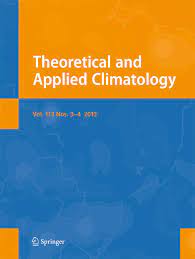
Theoretical and Applied Climatology offers the latest and most significant developments from studies around the world in climate, atmosphere, and meteorology. Along with its sister journal Meteorology and Atmospheric Physics, they are continuations of Archives for Meteorology, Geophysics and Bioclimatology, Series A and B. These journals were originally founded in 1949 by W. Moerikhofer, of Davos, and F. Steinhauser, of Vienna.
- CiteScore = 5.8 (https://www.scopus.com/sourceid/14171?origin=resultslist)
- Impact Factor = 3.409 (https://www.webofscience.com/wos/woscc/summary/7e4e7f3e-d839-4ddb-9517-a6a778b1a979-5e53e3c1/relevance/1)
- Online version: https://www.springer.com/journal/704
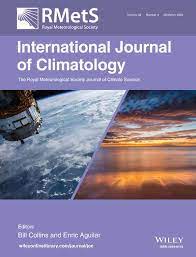
The International Journal of Climatology aims to span the well-established but rapidly growing field of climatology, through the publication of research papers, short communications, major reviews of progress, and reviews of new books and reports in the area of climate science. The Journal’s main role is to stimulate and report research in climatology, from the expansive fields of the atmospheric, biophysical, engineering, and social sciences.
- CiteScore = 6.7 (https://www.scopus.com/sourceid/13507?origin=resultslist)
- Impact Factor = 3.651 (https://www.webofscience.com/wos/woscc/summary/f3d68200-66a1-4a88-ad35-ee755635e1af-5e543091/relevance/1)
- Online version: https://rmets.onlinelibrary.wiley.com/journal/10970088
Energy
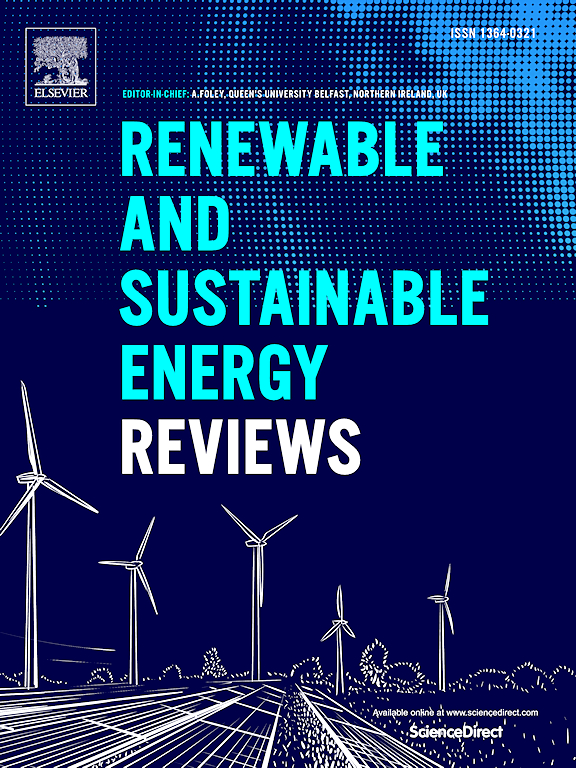
Renewable and Sustainable Energy Reviews publishes review papers, original research, case studies, and new technology analyses that have a significant review element, which may take the form of a critique, comparison, or analysis. The journal also publishes a new paper type, Expert Insights, which are commissioned mini-reviews from field leaders on topics of significant interest. Case studies will only be considered if they also demonstrate the applicability of the work to other regions and/or inform the broader field of renewable and sustainable energy. A bibliographic or literature review, without critical thinking, is not considered suitable. The mission of the journal is to communicate the most interesting and relevant critical thinking in renewable and sustainable energy in order to bring together the research community, the private sector and policy, and decision-makers. The aim of the journal is to share problems, solutions, novel ideas, and technologies to support sustainable development, the transition to a low carbon future, and achieve our emissions targets as established by the United Nations Framework Convention on Climate Change.
- CiteScore = 28.5 (https://www.scopus.com/sourceid/27567)
- Impact Factor = 16.799 (https://www.webofscience.com/wos/woscc/summary/376d7867-87cd-4875-b8b7-10b0ede33dfc-5e66e9aa/relevance/1)
- Print version (Available at Library): v.1 (1997); v.2 n.4 (1998); v.4-7 (2000-2003)
- Online version: https://www.sciencedirect.com/journal/renewable-and-sustainable-energy-reviews
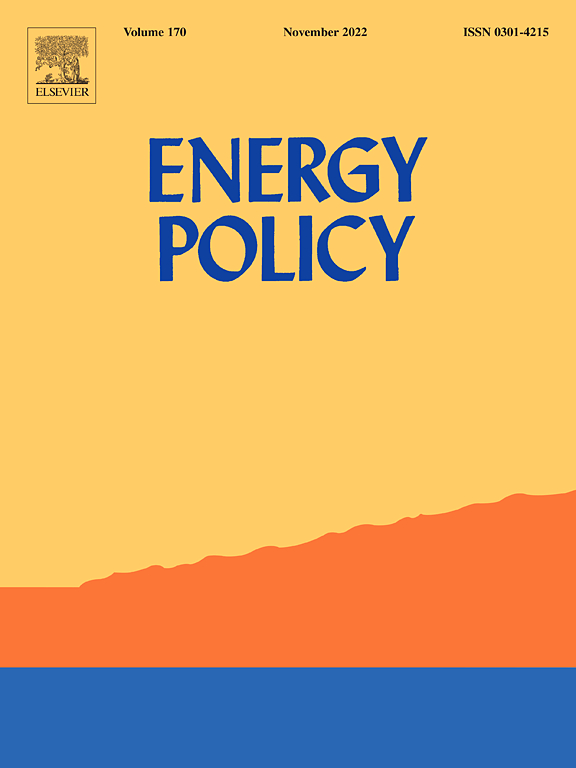
Energy Policy is an international peer-reviewed journal addressing the policy implications of energy supply and use from their economic, social, planning, and environmental aspects. Papers may cover global, regional, national, or even local topics that are of wider policy significance, and of interest to international agencies, governments, public and private sector entities, local communities, and non-governmental organizations. Within this broad spectrum, topics of particular interest include energy and environmental regulation, energy supply security, the quality and efficiency of energy services, the effectiveness of market-based approaches and/or governmental interventions, technological innovation and diffusion, and voluntary initiatives where the broader policy implications can be recognized. Policy prescriptions are required to be supported by rigorous analysis and balanced appraisal.
- CiteScore = 12.4 (https://www.scopus.com/sourceid/29403)
- Impact Factor = 7.576 (https://www.webofscience.com/wos/woscc/summary/090e72fa-c3b8-473d-912f-a58d655751bd-5e672f1f/relevance/1)
- Print version (Available at Library): v.1-13 (1973-1985);v.14 n.1-4,6 (1986);v.15-18 (1987-1990);v.19 n.5-10 (1991);v.20 n.4-12 (1992);v.21 n.1-10,12 (1993);v.22-25 (1994-1997);v.26 n.1-7,9-14 (1998);v.27-31 (1999-2003)
- Online version: https://www.sciencedirect.com/journal/energy-policy

Energy is an international, multi-disciplinary journal in energy engineering and research. The journal aims to be a leading peer-reviewed platform and an authoritative source of information for analyses, reviews, and evaluations related to energy. The journal covers research in mechanical engineering and thermal sciences, with a strong focus on energy analysis, energy modeling and prediction, integrated energy systems, energy planning, and energy management. The journal also welcomes papers on related topics such as energy conservation, energy efficiency, biomass and bioenergy, renewable energy, electricity supply and demand, energy storage, energy in buildings, and on economic and policy issues, provided such topics are within the context of the broader multi-disciplinary scope of Energy.
- CiteScore = 13.4 (https://www.scopus.com/sourceid/29348)
- Impact Factor = 8.857 (https://www.webofscience.com/wos/woscc/summary/289b6892-2f3f-408d-aa8c-279bd34caee9-5e68b474/relevance/1)
- Print version (Available at Library): v.1-9 n.6 (1976-1984);v.10-14 (1985-1989);v.15 n.1-4,6-12 (1990);v.16 n.1-3,8-12 (1991);v.17 n.1-4,9-12 (1992);v.18 n.9-12 (1993);v.19-28 (1994-2003)
- Online version: https://www.sciencedirect.com/journal/energy
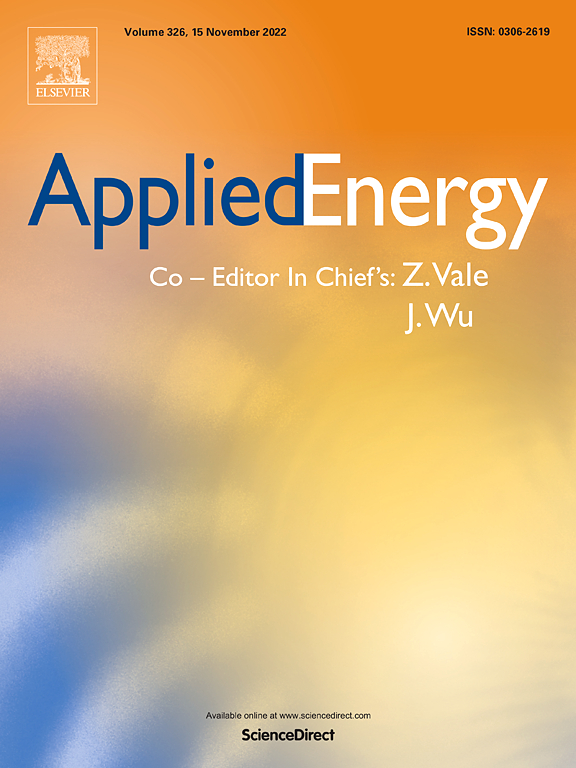
Applied Energy provides a forum for information on innovation, research, development, and demonstration in the areas of energy conversion and conservation, the optimal use of energy resources, analysis and optimization of energy processes, mitigation of environmental pollutants, and sustainable energy systems. The journal publishes original papers, review articles, technical notes, and letters to the editor. Authors are encouraged to submit manuscripts that bridge the gaps between research, development, and implementation. The breadth of coverage ranges from innovative technologies and systems of both fossil and renewable energy to the economic industrial and domestic use of energy with no or minor impact on the environment. Applied Energy is also concerned with the attendant problems of modeling and forecasting, conservation strategies, and the environmental, social, and economic impacts of energy policies and usage, including climate change mitigation and other environmental pollution reduction.
- Cite Score = 20.4 (https://www.scopus.com/sourceid/28801)
- Impact factor =11.446 (https://www.webofscience.com/wos/woscc/summary/5ee87f01-73f3-4fc6-8758-a476bea69333-5e68f141/relevance/1)
- Print version (Available at Library): v.1-4 (1975-1978); v.6-76 (1980-2003)
- Online version: https://www.sciencedirect.com/journal/applied-energy
Engineering & Technologies
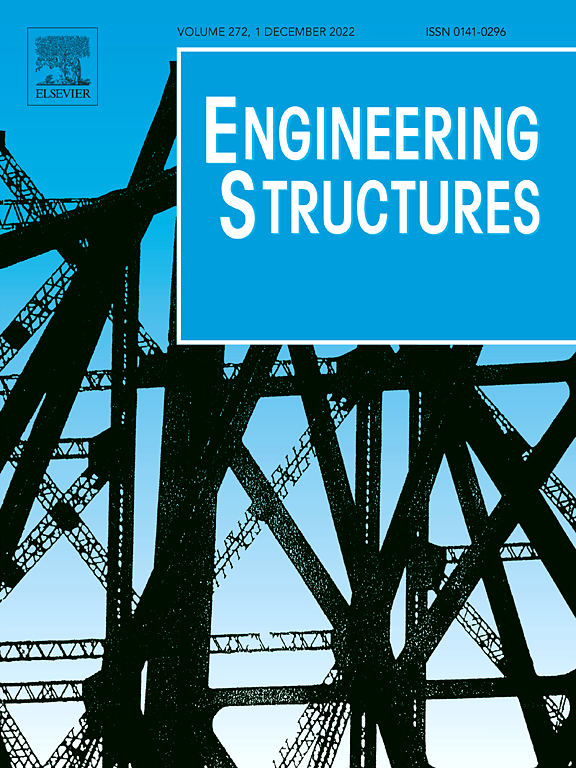
Engineering Structures provides a forum for a broad blend of scientific and technical papers to reflect the evolving needs of the structural engineering and structural mechanics communities. Particularly welcome are contributions dealing with new developments or innovative applications of structural and mechanics principles and digital technologies for the analysis and design of engineering structures. The journal aspires to a broad and integrated coverage of these principles and technologies to structures and structural components, considering all classes of engineering structural materials (steel, steel, and fiber reinforced concrete, composite, masonry, glass, wood, novel (smart) materials such as nanomaterials and bio-inspired materials).
- CiteScore = 7.7 (https://www.scopus.com/sourceid/15652)
- Impact Factor = 5.582 (https://www.webofscience.com/wos/woscc/summary/9df25358-0e88-476d-b98f-e9caf16872ef-5e6c307a/relevance/1)
- Print version (Available at Library): v.1-25 (1978/79-2003)
- Online version: https://www.sciencedirect.com/journal/engineering-structures
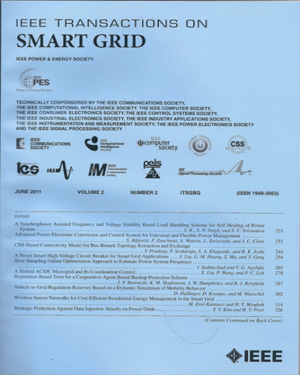
IEEE Transactions on Smart Grid is a cross-disciplinary journal aimed at disseminating the results of research on and development of the smart grid, which encompasses energy networks where prosumers, electric transportation, distributed energy resources, and communications are integral and interactive components, as in the case of microgrids and active distribution networks interfaced with transmission systems. The journal publishes original research on theories and principles of smart grid technologies and systems, used in demand response, Advance Metering Infrastructure, cyber-physical systems, multi-energy systems, transactive energy, data analytics, and EV integration. Surveys of existing work on the smart grid may also be considered for publication when they propose a new viewpoint on history and a challenging perspective on the future of intelligent and active grids.
- CiteScore = 22.5 (https://www.scopus.com/sourceid/19700170610?origin=resultslist)
- Impact Factor: 10.275 (https://www.webofscience.com/wos/woscc/summary/ff8b58af-4c8f-4104-8b8c-2565ba8e9d4e-5e6ccce4/relevance/1)
- Online version: https://ieeexplore.ieee.org/xpl/aboutJournal.jsp?punumber=5165411
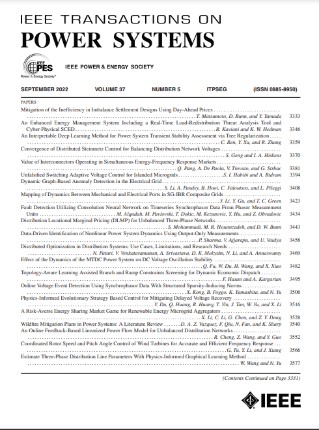
IEEE Transactions on Power Systems covers the education, analysis, operation, planning, and economics of electric generation, transmission, and distribution systems for general industrial, commercial, public, and domestic consumption, including the interaction with multi-energy carriers. The focus of this transaction is the power system from a systems viewpoint instead of the components of the system. It has five (5) key areas within its scope with several technical topics within each area. These areas are (1) Power Engineering Education, (2) Power System Analysis, Computing, and Economics, (3) Power System Dynamic Performance, (4) Power System Operations, and (5) Power System Planning and Implementation.
- CiteScore = 16 (https://www.scopus.com/sourceid/28825?origin=resultslist)
- Impact Factor = 7.326 (https://www.webofscience.com/wos/woscc/summary/abdb7fbb-e8e3-4ab8-adc4-42d16c3adead-5e6e2bc2/relevance/1)
- Print version (Available at Library): v.1 n.1-2,4 (1986); v.2-9 (1987-1994); v.10 n.1-2 (1995); v.11-20 (1996-2005)
- Online version: https://ieeexplore.ieee.org/xpl/RecentIssue.jsp?punumber=59
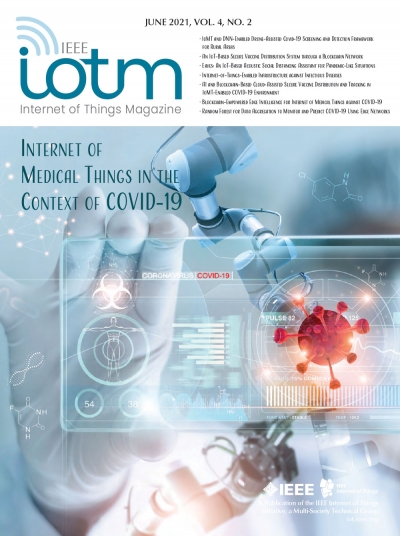
IEEE Internet of Things (IoT) Journal publishes articles on the latest advances, as well as review articles, on the various aspects of IoT. Topics include IoT system architecture, IoT enabling technologies, IoT communication and networking protocols such as network coding, and IoT services and applications. Examples are IoT demands, impacts, and implications on sensors technologies, big data management, and future internet design for various IoT use cases, such as smart cities, smart environments, smart homes, etc. The fields of interest include IoT architecture such as things-centric, data-centric, and service-oriented IoT architecture; IoT enabling technologies and systems integration such as sensor technologies, big sensor data management, and future Internet design for IoT; IoT services, applications, and test-beds such as IoT service middleware, IoT application programming interface (API), IoT application design, and IoT trials/experiments; IoT standardization activities and technology development in different standard development organizations (SDO) such as IEEE, IETF, ITU, 3GPP, ETSI, etc.
- CiteScore = 17.1 (https://www.scopus.com/sourceid/21100338350?origin=resultslist)
- Impact Factor = 10.238 (https://www.webofscience.com/wos/woscc/summary/586e3660-a8b1-4378-91ea-1136c7ca2f16-5e6e5570/relevance/1)
- Online version: https://ieeexplore.ieee.org/xpl/aboutJournal.jsp?punumber=6488907
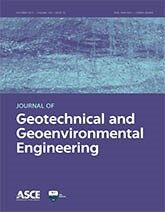
Journal of Geotechnical and Geoenvironmental Engineering covers the broad area of practice known as geotechnical engineering. Papers are welcomed on topics such as foundations, retaining structures, soil dynamics, engineering behavior of soil and rock, site characterization, slope stability, dams, rock engineering, earthquake engineering, environmental geotechnics, geosynthetics, computer modeling, groundwater monitoring and restoration, and coastal and geotechnical ocean engineering. Authors are also encouraged to submit papers on new and emerging topics within the general discipline of geotechnical engineering. Theoretical papers are welcomed, but there should be clear and significant potential for the practical application of the theory. Practice-oriented papers and case studies are particularly welcomed and encouraged.
- Impact factor = 4.6 (https://www.webofscience.com/wos/woscc/summary/7c589320-2876-4928-974e-a66ac4069761-5e6e8084/relevance/1)
- CiteScore = 6.5 (https://www.scopus.com/sourceid/16281?origin=resultslist)
- Print version (Available at Library): v.123-133 n.3 (1997-Mar.2007)
- Online version: https://ascelibrary.org/journal/jggefk
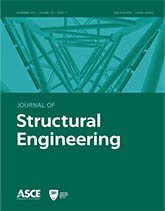
Journal of Structural Engineering has a history of reporting on fundamental knowledge that advances the state-of-the-art and state-of-the-practice in structural engineering. Authors discuss the art and science of structural modeling and design; develop, apply and interpret the results of novel analytical, computational and experimental simulation techniques; propose new structural systems and study the merits of existing ones; pioneer methods for maintenance, rehabilitation, and monitoring of existing structures; and investigate the properties of engineering materials as related to structural behavior. Papers making a fundamental contribution in the field of structural engineering at the intersection of structural engineering and other disciplines are welcome.
- CiteScore = 5.8 (https://www.scopus.com/sourceid/16305?origin=resultslist)
- Impact Factor = 3.858 (https://www.webofscience.com/wos/woscc/summary/45b789f2-1cf7-497b-b525-7929f91b60b9-5e6ee5de/relevance/1)
- Print version (Available at Library): v.109-116 (1983-1990);v.117 n.1-9 (1991);v.118 (1992);v.119 n.3-12 (1993);v.120-133 n.3 (1994-2007)
- Online version: https://ascelibrary.org/journal/jsendh
Chemistry
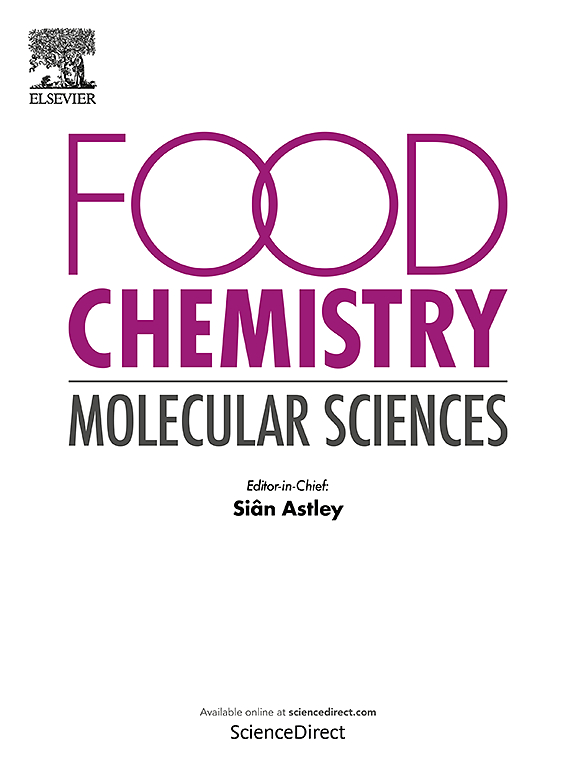
Food Chemistry are assessed and modified on an annual basis to reflect developments in the field. This means that research topics that have been deemed in scope previously may now fall outside of the scope of the journal as our scientific and technical understanding of the fields evolve and topics become less novel, original or relevant to Food Chemistry.
- CiteScore = 13.1 (https://www.scopus.com/sourceid/24039)
- Impact Factor = 9.231 (https://www.webofscience.com/wos/woscc/summary/383e28b2-4889-480a-b3db-464788141036-5e723462/relevance/1)
- Online version: https://www.sciencedirect.com/journal/food-chemistry
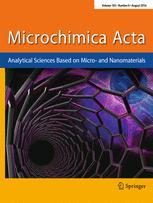
Microchimica Acta (MCA) has established itself as a premier forum for truly novel research results in chemical and biochemical analytical sciences based on the use of micro/nano-structured materials. Beyond such advanced analytical approaches, coverage is extended to methods and devices that provide expedient solutions to the most contemporary demands in (bio)chemical sciences. This includes for example point-of-care technologies, wearable (bio)sensors, in-vivo-monitoring, micro/nanomotors, and materials based on synthetic biology as well as biomedical imaging and targeting.
- CiteScore = 10.2 (https://www.scopus.com/sourceid/24072?origin=resultslist)
- Impact Factor = 6.408 (https://www.webofscience.com/wos/woscc/summary/43f58acb-2f4b-4521-9b52-d3e40c76c479-5e724f23/relevance/1)
- Online version: https://www.springer.com/journal/604
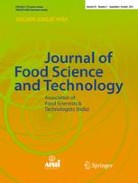
Journal of Food Science and Technology (JFST) is the official publication of the Association of Food Scientists and Technologists of India (AFSTI). This monthly publishes peer-reviewed research papers and reviews in all branches of science, technology, packaging, and engineering of foods and food products. Special emphasis is given to fundamental and applied research findings that have the potential for enhancing product quality, extending the shelf life of fresh and processed food products, and improving process efficiency. Critical reviews on new perspectives in food handling and processing, innovative and emerging technologies and trends, and future research in food products and food industry byproducts are also welcome. The journal also publishes book reviews relevant to all aspects of food science, technology, and engineering.
- CiteScore = 5.3 (https://www.scopus.com/sourceid/20617?origin=resultslist)
- Impact Factor = 3.117
- Online version: https://www.springer.com/journal/13197
Aquaculture
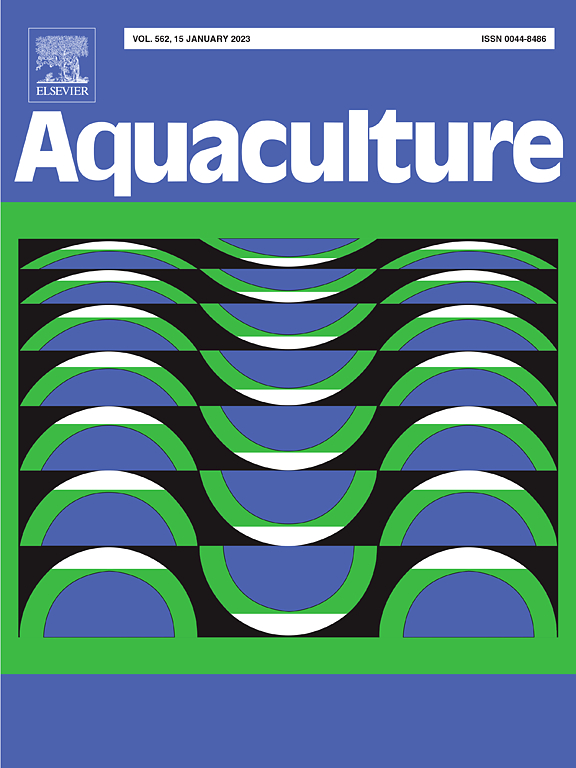
Aquaculture publishes and makes available the highest quality international scientific contributions to aquaculture. The Journal publishes disciplinary, interdisciplinary, and transdisciplinary aquaculture research. The scope of Aquaculture includes the traditional priorities of its sections but also includes papers from non-traditional scientific areas such as sustainability science, social-ecological systems, ornamental, conservation, and restoration related to aquaculture.
- CiteScore = 6.4 (https://www.scopus.com/sourceid/29419)
- Impact Factor = 5.135 (https://www.webofscience.com/wos/woscc/summary/5fb1a4e2-e6bb-4783-a7a3-2db3b0fc166c-5e740b48/relevance/1)
- Print version (Available at Library): v.1-15 n.3 (1972-1978); v.16-83 (1979-1990); v.84 n.1-2 (1990);v.85-114 (1990-1993); v.115 n.3/4 (1993);v.116-v.118 n.1-2 (1993);v.119-135 (1994-1995);v.136 n.3-4 (1995);v.137-155 (1995-1997);v.156 n.3-4 (1997);v.157-225 (1997-2003)
- Online version: https://www.sciencedirect.com/journal/aquaculture
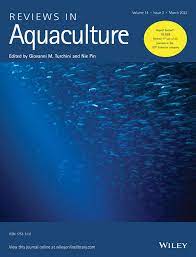
Reviews in Aquaculture is the leading Fisheries journal. The primary aim of the journal is to provide a forum for reviews on developments in aquaculture science, techniques, policies, and planning. The journal will publish fully peer-reviewed review articles, invited or otherwise, on major aspects pertaining to aquaculture, including global, regional, and/or national production and market trends; aquaculture practices and technological developments; aquaculture-environment interactions; indigenous and alien species in aquaculture; the biology and culture of aquaculturally important and emerging species; utilization of primary and secondary resources in aquaculture; developments in artificial propagation of individual species and/or groups; developments in feeds and feeding; genetics and aquaculture; health management in aquaculture; policy developments pertaining to aquaculture; aquaculture product quality and traceability; and socio-economics of aquaculture and impacts.
- Impact Factor = 10.618 (https://www.webofscience.com/wos/woscc/summary/ef34009f-fc83-4c31-b207-efe8da0f57c5-5e74357c/relevance/1)
- CiteScore = 16.0 (https://www.scopus.com/sourceid/19900191716?origin=resultslist)
- Online version: https://onlinelibrary.wiley.com/journal/17535131
Management
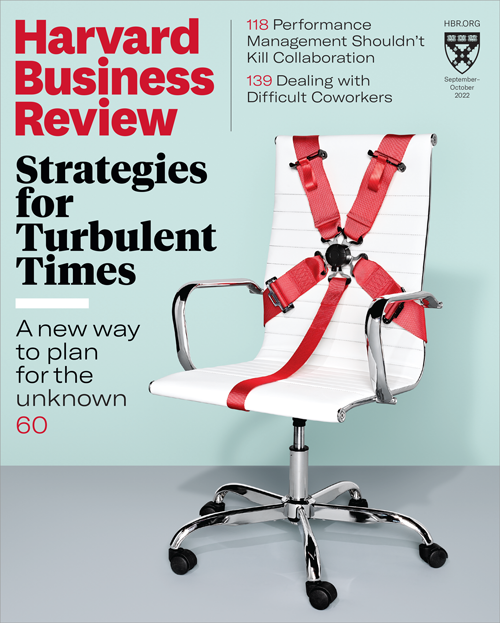
Harvard Business Review publishes new and authoritative ideas for improving the practice of management. Written by leading business thinkers and executives, HBR gives readers a first look at cutting-edge ideas and their real-world applications in areas like strategy, leadership, marketing, team management, and professional development. Each monthly issue presents groundbreaking research, analysis of the forces shaping the business agenda, and proven best practices designed to help individuals and organizations lead, manage, and compete more effectively and with greater purpose.
- CiteScore = 3.9 (https://www.scopus.com/sourceid/22336?origin=resultslist)
- Impact Factor = 12.129 (https://www.webofscience.com/wos/woscc/summary/b5f7b32a-44f4-47a2-8417-a01bdefdd541-5e747ada/relevance/1)
- Print version (Available at Library) : v.39-60 (1961-1982); v.61 n.1-4,6 (1983); v.63 n.1-3 (1985); v.64-65 (1968-1987); v.66 n.1,3-6 (1988); v.67 n.2-6 (1989); v.68-70 (1990-1992); v.71 n.1-3,6 (1993); v.72 n.1-3 (1994); v.73-75 (1995-1997); v.76 n.2-6 (1998); v.77-78 (1999-2000); v.79 n.1-11 (2001); v.80 n.1-4,9-12 (2002); v.81 n.1-6 (2003); v.95 n.6 (2017)
- Online version: https://web.p.ebscohost.com/ehost/search/advanced?vid=8&sid=58d2268a-c72a-403b-bd47-2e7e4a866ba1%40redis
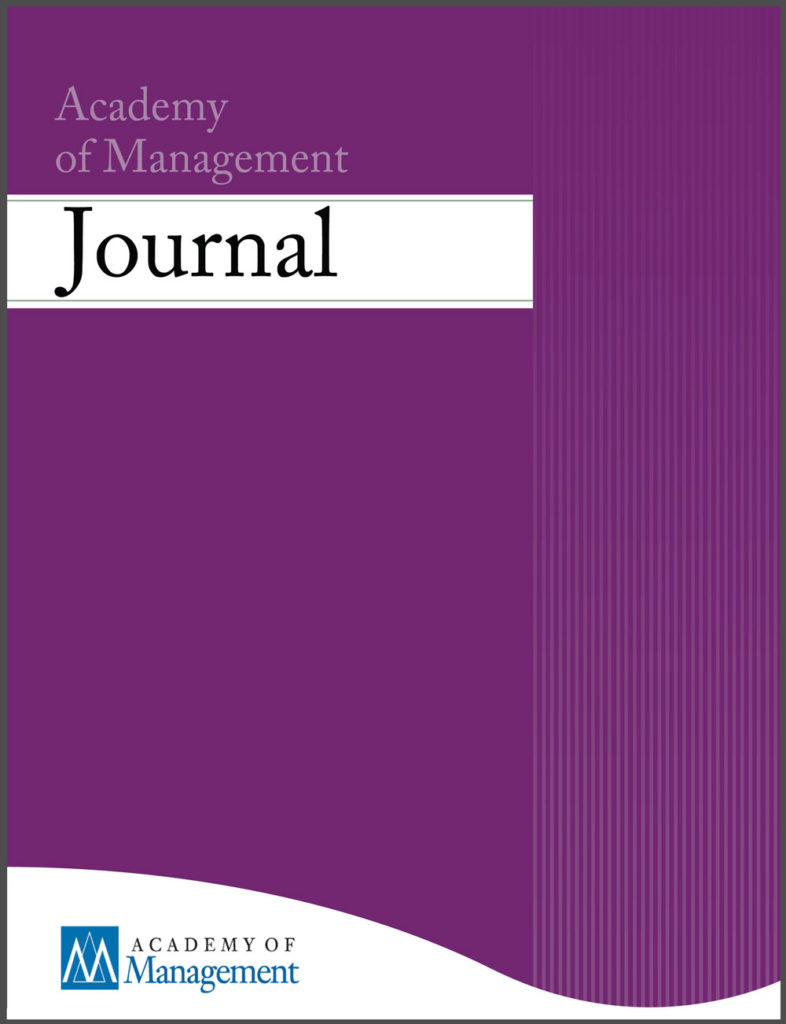
Academy of Management Journal (AMJ) publishes empirical research that tests, extends, or builds management theory and contributes to management practice. All empirical methods including, but not limited to, qualitative, quantitative, field, laboratory, meta-analytic, and mixed methods are welcome. To be published in AMJ, the research must make strong empirical and theoretical contributions and the manuscript should highlight the relevance of those contributions to management practice. Authors should strive to produce original, insightful, interesting, important, and theoretically bold research that demonstrates a significant “value-added” contribution to the field’s understanding of an issue or topic.
- CiteScore = 15.3 (https://www.scopus.com/sourceid/20191?origin=resultslist)
- Impact Factor = 10.979 (https://www.webofscience.com/wos/woscc/summary/b7f1f8c3-e98a-4dcd-b645-360378d1d28f-5e74e2d1/relevance/1)
- Print version (Available at Library): v.13 n.2-4 (1970); v.33 n.1-4 (1990);v.34 n.1-2 (1991); v.38-53 (1995-2010); v.54 n.4-6 (2011); v.55 n.1 (2012); v.58 n.5 (2015); v.59 (2016); v.60 n.1 (2017)
- Online version: https://web.p.ebscohost.com/ehost/resultsadvanced?vid=15&sid=58d2268a-c72a-403b-bd47-2e7e4a866ba1%40redis&bquery=JN+%22Academy+of+Management+Journal%22&bdata=JmRiPWJ0aCZ0eXBlPTEmc2VhcmNoTW9kZT1TdGFuZGFyZCZzaXRlPWVob3N0LWxpdmU%3d

